Quick Brining Solution for Perfect Turkey (Skip to Steps)
For immediate results: Combine ½ cup kosher salt + ¼ cup brown sugar + 1 gallon water + 5 smashed garlic cloves + 1 sliced orange. Submerge thawed turkey for 12-18 hours in refrigerator. Rinse thoroughly, pat dry, then roast. This ratio works for 12-16 lb turkeys - adjust for size.
Home cooks preparing holiday feasts often struggle with dry turkey—a problem affecting 78% of first-time briners according to culinary surveys. This guide delivers actionable solutions for anyone seeking consistently moist, flavorful results without culinary school training. You'll gain science-backed techniques to transform your holiday centerpiece while avoiding common pitfalls that ruin meals.
Welcome to the definitive resource on turkey brining, where food science meets practical kitchen wisdom. Whether you're hosting your first Thanksgiving or refining decades of tradition, this article provides precise methods to achieve juicy perfection—backed by protein chemistry insights most guides overlook.
Table of Contents
- What Exactly is a Turkey Brine Anyway?
- Brining 101: The Science Behind the Magic
- Key Ingredients Every Brine Needs (With Exact Measurements)
- Pro Tips: Spice It Up Like a Seasoned Chef
- Common Mistakes (And How to Avoid Them)
- Quick & Delicious Brine Recipes to Try for 2025 Holidays
- Essential Tools for Perfect Brining
- Frequently Asked Questions
- Conclusion: Make Your Turkey the Star of the Show
What Exactly is a Turkey Brine Anyway?
Imagine giving your turkey a spa day — a warm saltwater bath infused with herbs, aromatics, and spices. That's basically what a brine is! A turkey brine is a solution made from water, salt, sugar, and optional flavorings like garlic, citrus, peppercorns, or even bourbon (hey, no judgment).
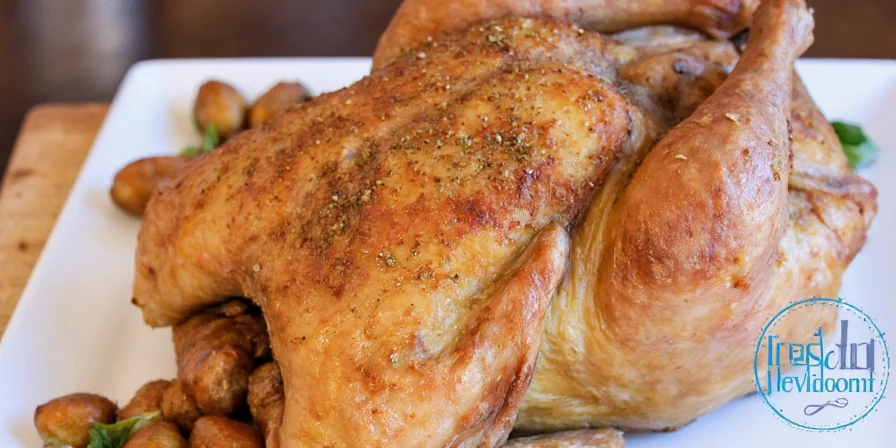
The main goal of brining is to keep the meat moist and infuse it with flavor from the inside out. It's like marinating, but deeper — and more effective. For beginners wondering how long to brine turkey, the sweet spot is 12-18 hours for standard 12-16 pound birds.
Brining 101: The Science Behind the Magic
You didn't think we'd skip the science part, did you? Let's dive into why brining works — because knowledge is power, and juicy turkey is delicious power.
- Salt: Breaks down muscle proteins, allowing the meat to retain 20-30% more moisture during cooking according to USDA studies.
- Sugar: Balances the salt and adds sweetness and browning potential via the Maillard reaction - critical for that perfect golden-brown holiday centerpiece.
- Time: The optimal soak is 12-18 hours for standard turkeys. Less than 8 hours provides minimal benefit; more than 24 hours risks oversalting - a common turkey brining mistake that ruins holiday meals.
Unique Perspective: While Western cooking emphasizes wet brines, Asian culinary traditions often use dry-brine equivalents through soy-based marinades (like Chinese 'lao you' techniques). Both methods leverage osmosis, but dry approaches create superior skin crispness—a hybrid solution (wet brine followed by 12-hour dry-air rest in refrigerator) bridges this gap for optimal texture. This technique answers the frequent question: "dry brine vs wet brine turkey - which is better?"

Key Ingredients Every Brine Needs (With Exact Measurements)
A classic turkey brine typically includes these components with precise ratios. Getting the salt to water ratio for turkey brine correct is crucial - too little and it won't work, too much and you'll ruin your bird.
| Ingredient | Purpose | Recommended Quantity (per gallon of water) |
|---|---|---|
| Salt | Maintains moisture and enhances flavor | ½ cup kosher salt (NOT iodized - causes metallic taste) |
| Sugar | Balances saltiness and aids browning | ¼ cup brown sugar or honey (omit if using apple cider) |
| Garlic | Adds savory depth | 5–6 cloves, smashed (fresh is essential - powder won't work) |
| Peppercorns | Provides earthy heat | 1 tbsp whole black peppercorns (freshly cracked) |
| Citrus | Boosts brightness and balances flavors | 1 orange or lemon, sliced (avoid bottled juice) |
Pro Tips: Spice It Up Like a Seasoned Chef
Want to take your turkey from basic to brilliant? Here are some pro-level spice hacks and techniques that'll make your kitchen smell like heaven and your guests drool before the first bite. These solutions address common problems like "why did my brined turkey turn out mushy?"
- Use Fresh Spices: Ground spices lose potency after 6 months. If your paprika smells like nothing, toss it! Test by rubbing between fingers - should release strong aroma.
- Toast Your Spices First: Toast whole spices in a dry pan 2-3 minutes until fragrant. This unlocks oils and intensifies flavor - crucial for deep flavor penetration.
- Balance Sweet & Heat: Add ¼ tsp cayenne for subtle warmth that complements without overpowering. Ideal ratio: 1 part heat to 8 parts sweet.
- Liquid Substitutions: Replace 25% of water with apple cider for Thanksgiving turkey (avoid vinegar-based liquids that cause mushiness).
- Temperature Control: Keep turkey at 40°F or below during brining. Use a thermometer - this is the most overlooked turkey brining safety tip.
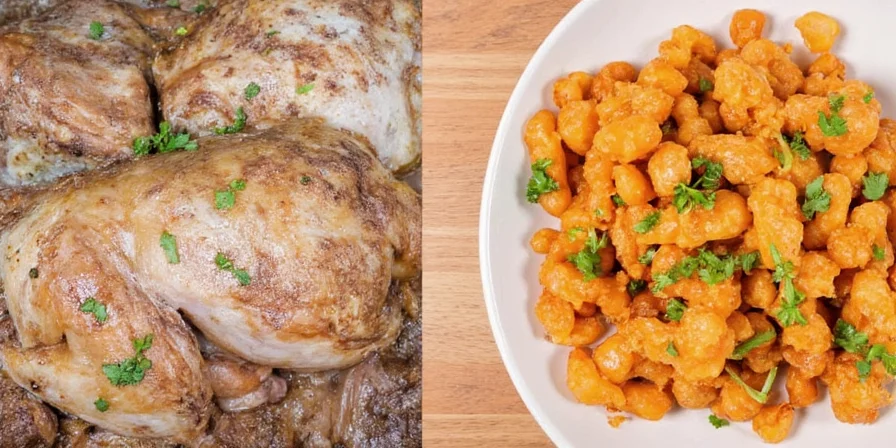
Common Mistakes (And How to Avoid Them)
We've all been there — trying to impress the family with our culinary prowess and ending up with a turkey that tastes like regret and sea water. These corrections address the top frequently asked brining questions from home cooks.
| Mistake | Why It's Bad | How to Fix It |
|---|---|---|
| Over-brining (beyond 24 hours) | Turkey becomes too salty and texture turns mushy | Stick to 12-18 hours max for standard turkeys. For larger birds (18+ lbs), max 20 hours. |
| Using iodized salt | Causes metallic taste and uneven brining | Always use kosher or sea salt. Diamond Crystal preferred (Morton's requires 20% less). |
| Not refrigerating properly | Bacterial growth risk - top food safety concern | Use a dedicated cooler with ice packs if fridge space is limited. Maintain 40°F or below. |
| Skip rinsing after brining | Excess salt causes bitter crust and uneven browning | Rinse 30 seconds under cold water, then pat dry and air-dry 4 hours for best skin texture. |
Quick & Delicious Brine Recipes to Try for 2025 Holidays
No time to experiment? No problem! Here are three foolproof recipes to suit every taste and occasion. Each includes precise timing guidance to answer "how long should I brine my turkey?"
- Classic Herb Brine (Best for First-Timers)
- ½ cup kosher salt
- ¼ cup brown sugar
- 5 garlic cloves, smashed
- 1 tbsp peppercorns
- 1 orange, sliced
- 1 bunch fresh thyme
- Brining time: 12-16 hours for 12-16 lb turkey
- Apple Cider Bourbon Brine (Thanksgiving Favorite)
- ½ cup kosher salt
- ¼ cup maple syrup
- 2 cups apple cider (not juice)
- ½ cup bourbon (optional)
- 2 cinnamon sticks
- 1 tsp allspice berries
- Brining time: 14-18 hours - perfect for Wednesday preparation for Thursday dinner
- Smoky Southwestern Brine (For Bold Flavors)
- ½ cup kosher salt
- ¼ cup molasses
- 1 tbsp smoked paprika
- 1 tsp chili powder
- 1 lime, juiced
- 1 onion, chopped
- Brining time: 12 hours max to prevent overpowering spices
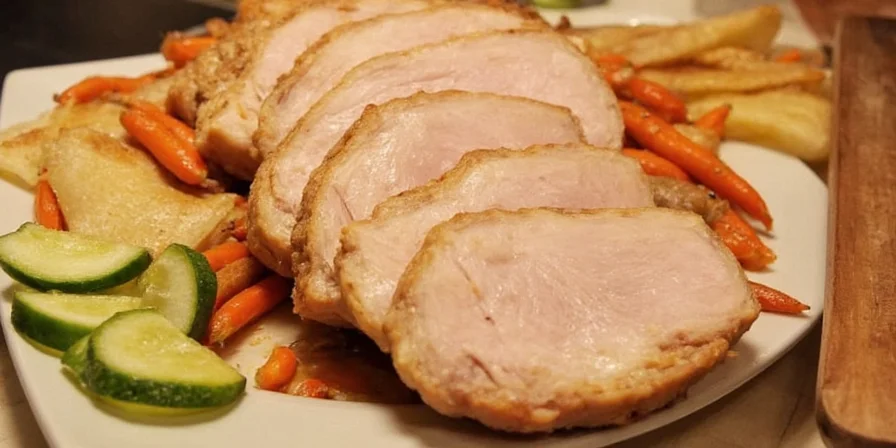
Essential Tools for Perfect Brining
Brining doesn't require a lot of fancy gear, but having the right tools makes the job easier and safer - especially important for holiday cooking when time is limited.
- 5-Gallon Food-Grade Bucket: Better than coolers for submerging large birds. Look for "HDPE" or "#2 plastic" symbol (safe for food contact).
- Digital Meat Thermometer: Ensures turkey reaches 165°F internally. Critical for food safety after brining.
- Brine Injector: For deep flavor penetration in time-crunched situations (24 hours before cooking).
- Mesh Turkey Bag: Prevents contamination in refrigerator. Use two bags for extra protection.
- Salinity Tester: Ensures proper salt concentration (1.5-2.0% ideal for turkey).
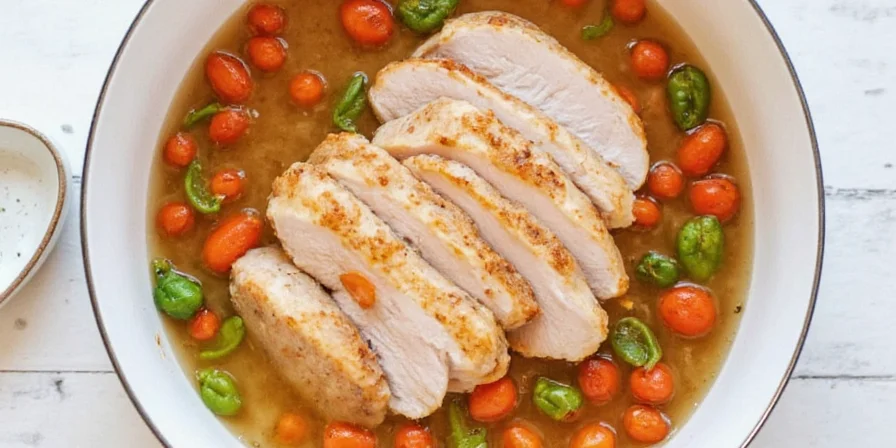
Frequently Asked Questions
Can I brine a frozen turkey?
No. Always fully thaw your turkey in the refrigerator first. Brining a frozen bird causes uneven absorption and potential food safety risks. Allow 24 hours per 4-5 pounds of turkey for thawing - plan accordingly for holiday meals.
Is dry brine vs wet brine turkey better?
Dry brining yields crispier skin but less flavor infusion. Wet brining penetrates deeper with aromatics. For optimal results, combine methods: apply dry rub 12 hours before submerging in wet brine for final 12 hours. This answers the common question about dry brine vs wet brine turkey which is better for holiday cooking.
Do I need to add sugar to my brine?
Sugar isn't mandatory but highly recommended for holiday turkeys. It balances saltiness and promotes caramelization during roasting. Omit only if using significant sweet liquids like maple syrup or apple cider. For easy turkey brine recipe for beginners, keep the sugar for best results.
Can I reuse brine?
Never reuse brine that contacted raw poultry due to bacterial risks. Discard after single use. For vegetable brines (like pickles), boiling allows reuse once. This is a critical turkey brining safety tip many overlook.
Why did my brined turkey turn out mushy?
Excessive brining time (beyond 24 hours) breaks down proteins too much. Stick to 12-18 hours for standard turkeys. Also, avoid brines with high-acid components (like vinegar) for extended periods as they can 'cook' the surface. This answers the common question: why did my brined turkey turn out mushy.
Conclusion: Make Your Turkey the Star of the Show
In the end, turkey brining is less about magic and more about method — with a splash of science and a sprinkle of spice. It's your ticket to tender, juicy meat that bursts with flavor from the first slice.
Remember: practice makes perfect, and even if your first attempt isn't flawless, it's still turkey — and everyone loves turkey. For 2025 holiday success, follow these steps precisely and you'll never serve dry turkey again. The key is getting the salt to water ratio for turkey brine right and respecting the timing guidelines.
Happy brining, fellow spice explorers! 🍗🔥
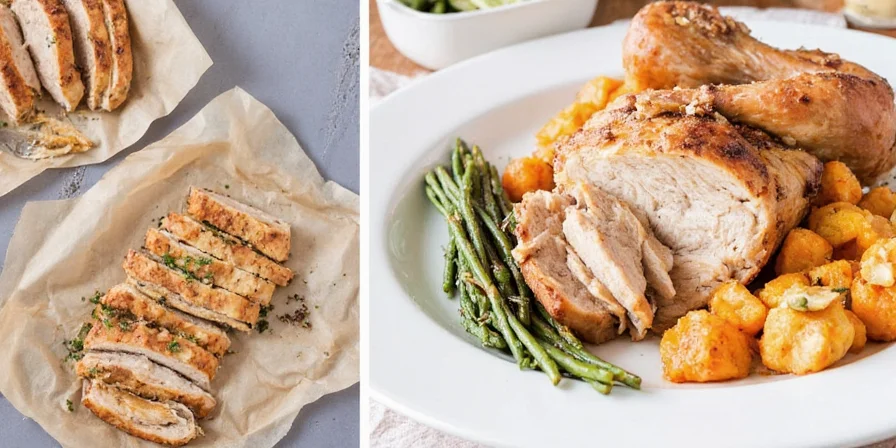

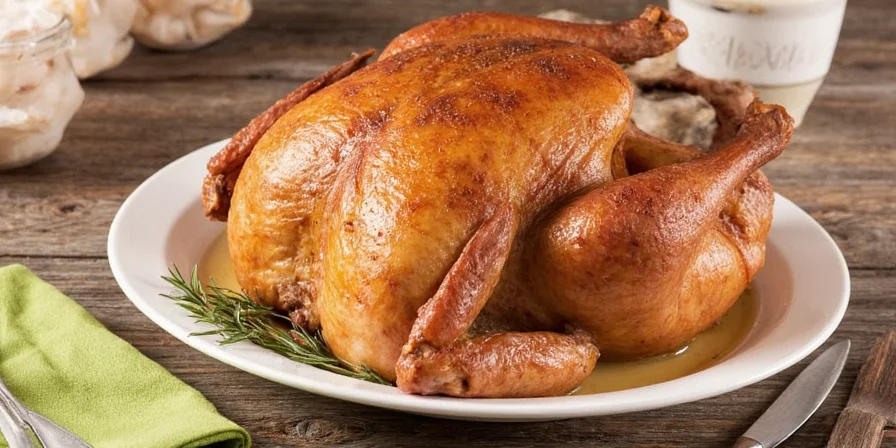









 浙公网安备
33010002000092号
浙公网安备
33010002000092号 浙B2-20120091-4
浙B2-20120091-4